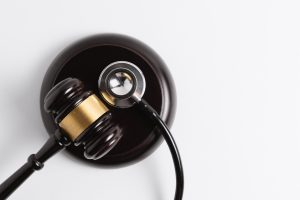Naltrexone May Soon Treat Heroin Addiction
Recent Norwegian research suggests that naltrexone implants could significantly reduce heroin dependency, which could have an enormous impact on available treatments for heroin addicts. Unlike naltrexone, current treatments for heroin addiction typically involve the use of other addictive morphine-like substances, such as methadone and Subutex. “Naltrexone is an opioid receptor antagonist used primarily in the management of alcohol dependence and opioid dependence. It is marketed in generic form as its hydrochloride salt, naltrexone hydrochloride, and marketed under the trade names Revia and Depade.”Researchers studied roughly 56 willing heroin-dependent patients. Twenty-three of the participants had a total of 20 pellets surgically implanted just beneath the skin, which contained naltrexone and a saline solution that allowed for a slow release of the medication to generate a six-

 Recent Norwegian research suggests that naltrexone implants could significantly reduce heroin dependency, which could have an enormous impact on available treatments for heroin addicts. Unlike naltrexone, current treatments for heroin addiction typically involve the use of other addictive morphine-like substances, such as methadone and Subutex.
Recent Norwegian research suggests that naltrexone implants could significantly reduce heroin dependency, which could have an enormous impact on available treatments for heroin addicts. Unlike naltrexone, current treatments for heroin addiction typically involve the use of other addictive morphine-like substances, such as methadone and Subutex.
“Naltrexone is an opioid receptor antagonist used primarily in the management of alcohol dependence and opioid dependence. It is marketed in generic form as its hydrochloride salt, naltrexone hydrochloride, and marketed under the trade names Revia and Depade.”
Researchers studied roughly 56 willing heroin-dependent patients. Twenty-three of the participants had a total of 20 pellets surgically implanted just beneath the skin, which contained naltrexone and a saline solution that allowed for a slow release of the medication to generate a six-month blockage effect.
“The researchers have been using naltrexone, a substance that works by completely blocking the effect of heroin and other morphine substances. This reduces the likelihood of overdose, physical dependency and other drug cravings.”
Participants were studied over a period of six months. Of those implanted with naltrexone, 11 out of 23 were able to abstain from using heroin or other morphine-like substances. In comparison, only 5 out of 26 in the control group were able to avoid using. In addition, the other 12 subjects treated with naltrexone were able to reduce their heroin use by more than half, whereas the remaining 19 subjects in control group continued to use daily.
In addition to these positive statistical results, participants rated this treatment method at 85 out of 100. Addicts and researchers alike can anticipate further studies confirming such positive results and possibly revolutionizing the treatment of heroin addiction some day.
Promising Treatment for Heroin Dependency
Naltrexone
© www.understandingaddictions.com
SOURCE: Understanding Addictions – Read entire story here.








